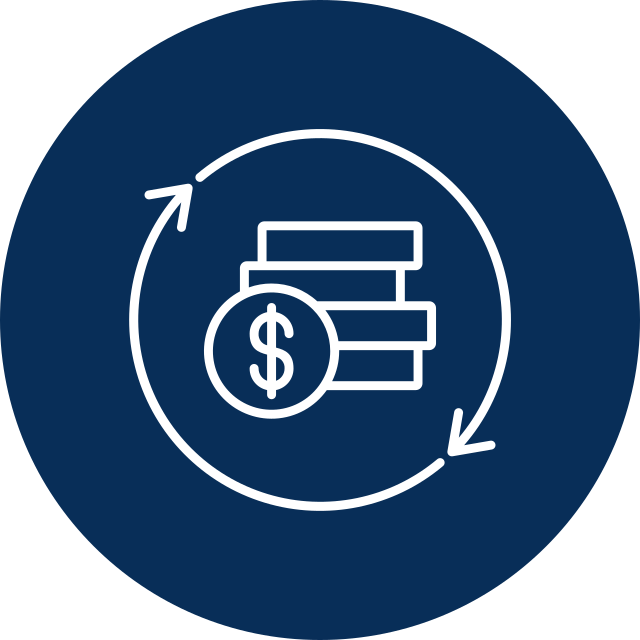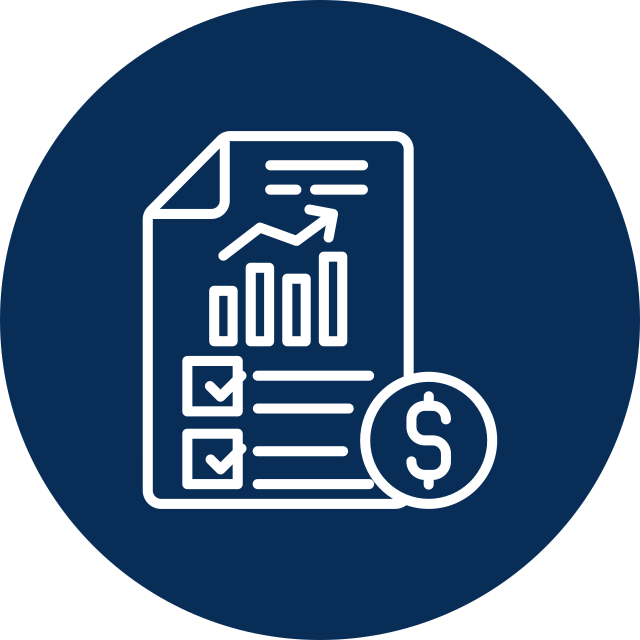Financial Reporting
The financial reporting of project activity is handled by the accountants at the Office of Research Administration, and for some projects, by accountants at the Systems Office level.
The SF425 financial report is used for LOC (Letter of Credit) type projects.
Reports for reimbursable/billable type projects are comprised of invoices or statements of expenditures.
Principal investigators generally need only to be concerned about the submission of progress reports and other technical reports. It is possible that some sponsors may request that financial and technical reports be submitted together. In the event they do, the accountants and principal investigators coordinate.
Jump to
Letter of Credits
Federal sponsoring agencies typically request financial reporting on an interim and final basis. The reporting form that is used is the Federal Financial Report commonly known as the SF425. It is sometimes referred to as the FFR. Sponsors may request an SF425 Cash Report where only the revenue section is completed. The cash report is routinely submitted by System accountants for their draw activities. A Full SF425 is submitted by ORA at intervals listed in the award agreement. The frequency of the submission depends on the needs of the federal agency. The most common reporting periods are quarterly reporting, followed by semi-annual, then annual reporting. A final financial report is always submitted at the very end of an award.
For the period being reported, ORA accountants report expenses that have been posted to the project in the general ledger. If the award has cost sharing, these costs are included as well as in-kind or third party if any.
Most federal awards are letter-of-credit (LOC) type awards. This means the way the University receives payment from these federal agencies are from drawdowns. There is no billing or invoicing involved. Funds are drawn weekly on the drawdown site to cover expenses that have been posted to the projects.
Reimbursables
Non-letter-of-credit projects are considered reimbursable and require invoicing. ORA prepares and submits itemized invoices to sponsors based on project expenses, including cost-sharing amounts. Payments are collected by ORA and deposited directly into the project account. Final payments may be withheld pending acceptance of the final technical report. For pre-paid awards, a final statement of expenditures is provided to the sponsor at project completion.
Invoices to Sponsors
ORA prepares and submits invoices to sponsors per the agreement terms. In certain cases, funds are requested electronically. Invoicing schedules vary by sponsor. Departments must submit charges and required documentation to ORA promptly to ensure timely invoicing.
Deposits
All deposits to sponsored project accounts, including checks, refunds, and ACH payments, must be processed by ORA. Departments are not authorized to process deposits for sponsored agreements.
Collection of Overdue Sponsor Payments
Many sponsored agreements require the University of Maine to extend credit to sponsors – meaning project costs are incurred by university departments before invoices can be submitted or payments received. While the Office of Research Administration (ORA) Accounting team leads the effort to collect sponsor payments (accounts receivable), departments are ultimately responsible for any costs that remain unreimbursed if the sponsor fails to pay.
ORA generally follows the timeline below when managing overdue payments, though some cases may require flexibility to preserve strong sponsor relationships while ensuring collection efforts continue.
Program Income
Program income is gross income that is directly generated by a sponsored activity or earned as a result of a sponsored activity. Program income includes, but is not limited to:
GL Closeout
Upon completion of the project activities, the GL project account is in-activated by ORA. If the project is one of several in an award, it is placed on in-active/hold status pending the completion of all of the other projects. Once all projects under the award have been completed the status is changed to in-active/close. In-active/close projects are not carried forward into the next fiscal year in Financials.
Before a project can be in-activated, all encumbrances must be cleared. There should be no encumbrances listed. Also, the project must be balanced out, meaning it is not overspent and all revenues have been collected. Any overages must be funded by moving the excess expenses to fund 04 and funding it by uncommitted voluntary cost sharing with unrestricted funds














